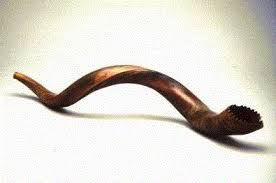|
The weather was gorgeous. Of course it was.
We were sitting up front in the Mykonos restaurant in Great Neck. The windows were out so patrons could enjoy the traditional glorious weather of the holy days. The Lubavitchers were walking to their Chabad, the men in suits, some of them tropical white, the women in dresses. This was a week ago, the second evening of Rosh Hashanah. A cluster of young people, boys and girls, stopped in front of our table. A young man, maybe 12 or 13, surveyed our table of four and asked the classic question, often posed by proselytizing men in the city: “You Jewish?” We glanced at Mike, our DH (Designated Hebrew, to use Ron Blomberg’s felicitous book title.) “Have you heard the shofar yet today?” the young man asked. (The shofar is the ram’s horn, blown all over the world at the Jewish new year.) Mike had been to temple in New York, but he was not about to spoil a good scene. No, we all said. The one adult in the group, I am assuming a rabbi, began to blow on the horn, for two or three minutes, his notes undoubtedly reaching the shopping mall across the street. Then he led Mike in a Rosh Hashanah prayer, as all four of us joined in. They wished us not only a good Rosh Hashanah but a sweet Rosh Hashanah. A good Rosh Hashanah could sound like a root canal, the rabbi said. But Rosh Hashanah should also be sweet. The young people smiled sweetly and we thanked them, and then they were gone. The manager brought our dinner, just perfect, like New York weather at the holy days.
Ed Martin
9/12/2013 07:47:46 am
Mazeltov, and Good New Year.
Thor A. Larsen
9/12/2013 01:33:35 pm
As we made our many calls to our Jewish friends during these holidays, we feel especially blessed for having grown up in the New York City area and developed close friendships in our teenage years that have remained very strong even after living Upstate NY for the last 50 years. May we also add that we especially share with the Jewsih people these Holy Days the hope of LONG-TERM PEACE SOON between Israel and it neighbors in the Middle East.
George Vecsey
9/14/2013 03:32:02 am
Thor, remember how quiet it was on the holy days at Jamaica High?
Thor A Larsen
9/14/2013 04:10:07 am
George,
Charlie Accetta
9/13/2013 12:48:18 pm
My grandfather was a young immigrant Italian, a tailor. His first jobs were in the Lower East Side, working for Jewish employers. They taught him, as well as many others, their particular brand of English. It is a vestigial dialect that he carried with him to the Bronx and to his eventual brood and it remains a part of our heritage in this, his adopted country. I join the crowd in wishing a sweet New Year to all of our friends.
George Vecsey
9/14/2013 03:30:32 am
Charlie, I delivered newspapers for a Russian guy who had picked up a few Italian phrases for emphasis. Capisce? Then again, what New Yorker doesn't pick up the perfect Yiddish words? 9/16/2013 07:42:05 am
George—I can relate to your quite classes during the High Holy days. My mother was always concerned about what others thought.
George Vecsey
9/16/2013 08:03:14 am
Alan, I totally agree with you. We pop back into Baysiee, Queens, for lunch now and then -- get reconnected with roots. Comments are closed.
|
Categories
All
|










